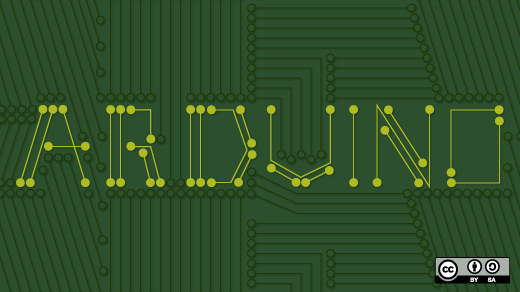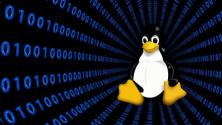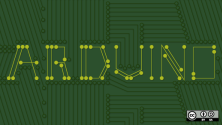"When you go to a store and buy an electronic gizmo, does it ever occur to you that you could make one yourself? Or even that it would be FUN to make one yourself?" This is how John Baichtal's Arduino for Beginners: Essential Skills Every Maker Needs begins, and that same curiosity and ingenuity flows through the entire book.
Baichtal is a contributing editor at MAKE Magazine and the co-founder of Twin Cities Maker at the Hack Factory. He knows a thing or two about the maker culture, and it shows in the book.
But be warned: this is not just a book full of projects, although it has plenty. It's also not a book jam-packed with schematics and programming examples, although it touches upon those concepts. Arduino for Beginners is instead designed to teach someone with little to no experience in electronics and code, giving them the necessary toolkit to build awesome gadgets with the beloved open source Arduino microcontroller.
The book begins with an introduction to Arduino hardware, focusing on the Arduino Uno board. Baichtal does a great job of explaining the board's capabilities in terms that anyone can understand, before going on to discuss other electronics components: LEDs, switches, potentiometers, resistors, and so on. He even touches on a piece of equipment that a lot of makers forget: the first aid kit. "Because maker injuries can sometimes be serious."
After a section on breadboarding, Baichtal walks you through the first project: a laser trip beam. With some basic electronics components, some open sourced laser-cut enclosures (or if you don't have access to a laser cutter, a cardboard box), and the supplied code, you'll have a gadget that sets off a buzzer when anyone breaks the laser trip beam. This is an excellent starter project for any open hardware beginner, and the instructions are clear, concise, and easy to follow.

The book covers a lot of beginner electronics techniques: breadboarding, soldering, sensors, and safely working with high voltage. But Baichtal isn't afraid to veer into more complex topics, like wireless networking, electronic music, and and motor control. Thankfully, he does a great job of breaking down the advanced stuff into bite-sized chunks for beginners. The chapter on measuring time, where you build an electronic "wind chime" that triggers every hour, starts off with this excellent explanation of how machines can tell time:
"How exactly does a robot tell time—perhaps it looks at a clock like the rest of us? That sounds flip, but it’s actually true: It’s possible to have the Arduino look up an Internet 'time server' and get the official time."
Finally, I think that even old hats at open hardware could stand to read the "Tool Bin" chapter. Here, Baichtal shows us all of those wonderful toys that makers need for their various projects. From the basic multimeter to lathes, drills and 3D printers to LEGO bricks, this section of the book is a checklist for everything that should be in a hardware hacker's toolbox. As with the rest of the book, there are full color illustrations of the different tools and brief explanations of what they do and how to use them.

Here's a list of some of the projects in the book:
- Use breadboards to quickly create circuits without soldering
- Create a laser/infrared trip beam to protect your home from intruders
- Use Bluetooth wireless connections and XBee to build doorbells and more
- Write useful, reliable Arduino programs from scratch
- Use Arduino’s ultrasonic, temperature, flex, and light sensors
- Build projects that react to a changing environment
- Create your own plant-watering robot
- Control DC motors, servos, and stepper motors
- Create projects that keep track of time
- Safely control high-voltage circuits
- Harvest useful parts from junk electronics
- Build pro-quality enclosures that fit comfortably in your home
The book is available at Amazon and Adafruit Industries.
View the complete collection of Open Hardware Week articles.








3 Comments